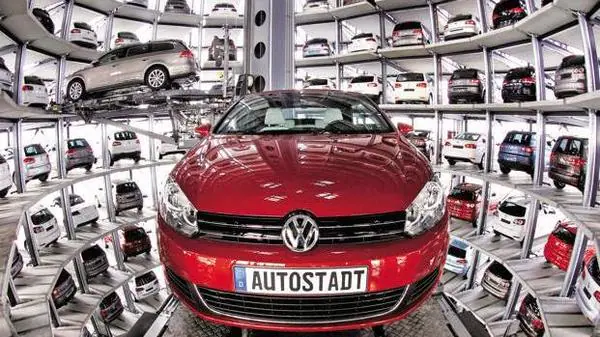BIS Pushes Standards for E-Mobility, AI, and Consumer Protection
New Delhi [India], September 13 (ANI): The Bureau of Indian Standards (BIS) has taken significant steps to strengthen India’s industrial ecosystem, particularly in electric mobility, artificial intelligence, and consumer product safety.
At a press conference during the IEC General Meeting in New Delhi, BIS Director General Pramod Kumar Tiwari highlighted new initiatives on e-mobility standards and emphasized the ongoing review of industrial hurdles by the Rajiv Gauba Committee.
BIS Standards for E-Mobility
With the rapid adoption of electric vehicles (EVs), BIS has already developed several standards covering:
Safety of charging stations
Battery storage systems
Safe battery charging protocols
Tiwari added that battery swapping standards are also in progress, noting:
“For e-mobility, we have already developed several standards. They relate basically to the safety of the charging stations, battery storage, safe battery charging, etc. Battery swapping is one area. And the sky is the limit.”
These standards aim to ensure safety, quality, compatibility, and interoperability across the EV ecosystem, including charging and swapping stations.
Standards in Artificial Intelligence
Beyond e-mobility, BIS is also focusing on artificial intelligence (AI). According to Tiwari, AI is a fast-evolving technology that requires frequent updates in standardization.
“Our focus was to standardise definitional aspects of AI, and we did it. Many other verticals are in progress.”
This shows BIS’s proactive approach in ensuring India’s industries are aligned with global AI frameworks and safety benchmarks.
Expanding Product Certification
Currently, nearly 700 products fall under mandatory BIS certification. Under the CRS scheme, the Ministry of Electronics and Information Technology (MeitY) has identified 65 products that cannot be manufactured or imported without BIS approval.
This system helps in maintaining product quality, safety, and consumer confidence.
When asked about future expansions, Tiwari clarified:
“Which products will be included? That’s very difficult because the decision rests with the ministries. Our job is only to familiarise them with the new standards and also to motivate them.”
Rajiv Gauba Committee: Reviewing Industrial Hurdles
A high-level committee, led by former Cabinet Secretary and NITI Aayog member Rajiv Gauba, is currently reviewing the hurdles industries face in obtaining approvals.
The committee’s task is to identify bottlenecks in standards and processes that affect productivity and competitiveness. On its progress, Tiwari confirmed that the “work is in progress.”
Hallmarking and Bullion Certification
BIS also continues to expand its hallmarking framework for precious metals and jewellery. While hallmarking is already mandatory for gold jewellery, the extension to bullion (raw precious metals) is still under discussion.
“Bullion is still under consideration. We have had consultations with stakeholders, but several challenges have been pointed out. These issues are still being sorted out.”
For clarity, bullion refers to raw precious metals like gold, silver, platinum, and palladium, not finished jewellery.
Conclusion
From EV charging standards to AI frameworks and consumer product certification, BIS is playing a central role in shaping India’s industrial standards. Meanwhile, the Rajiv Gauba Committee is working to simplify approval processes and remove bottlenecks, ensuring industries remain productive, competitive, and consumer-friendly.
